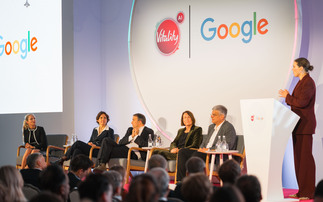Thinking of implementing a social media strategy? Paul Robertson asks John Barnes for a few pointers.
Weird though it is to be interviewing someone you work with, if you want to know about social media - and we do, don't we - John Barnes is your man.
Rejoicing in the title managing director of tech, he is in charge of Incisive Media's technology titles plus looks after digital media strategy for the whole company and heads Incisive's US interactive marketing business.
Incisive Media is a global firm, but, in the main companies looking at bringing on their social media offering, especially IFAs, are small ones. Do they generally do it poorly at the moment, is there a huge scope for improvement out there?
Perhaps surprisingly, Barnes said small companies aren't necessarily worse than large companies.
"It's how digitally savvy or aware they are. So a small web company is probably excellent at social media, maybe better at social media than a large bank. But it is really identifying within a company whether there's some expertise with digital knowledge that can help make it more fully rounded.
"In practice, it's probably fair to say that most small companies have more work to do because they're less known," he added.
Of course, once a company of any size decides to make an effort at a coherent digital policy, one absolute benefit is the flat playing field nature of the media gives the chance to play with the big boys. Barnes readily admits that just because you're big it doesn't necessarily mean you're good at social media.
"Large firms may be good at direct marketing but social media may have passed them by.
"There's an opportunity for a small company who isn't maybe as big or as good at direct marketing to say ‘I could actually take an advantage on social media' and change the way customers and competitors perceive it," he said.
So, what is the difference between social media and marketing? Barnes' definition is that marketing is using lists that you have collected to build a database of names, customers or ex-customers - those you are able to target. In effect, you are sending outbound messages to an individual that is targeted in some way to them.
With social media, Barnes believes, it is slightly different because you can have a one-to-one conversation.
"Generally what you are doing is listening, you're seeing what people are doing with maybe a hashtag, which is like a categorised tag about the subject, or you are basically collecting information and re-broadcasting it to an audience," he said.
"In that respect, it is more like publishing and less like direct marketing." Increasingly, social media will allow firms to target individuals if you have the tools and ever more often, larger companies are starting to collect lists of Twitter names and LinkedIn names and Facebook names, in the same way historically they would have done with email addresses.
But the difference, the advantage, is it gives real-time information about what customers are doing, saying and thinking.
"It gives you real-time information about the perception people have of your company," Barnes added. "If that's positive, you've got the opportunity to try to understand why it's positive and try to do more of it; and if it's negative, you've got the opportunity to counter that quite quickly to stop it becoming a problem.











